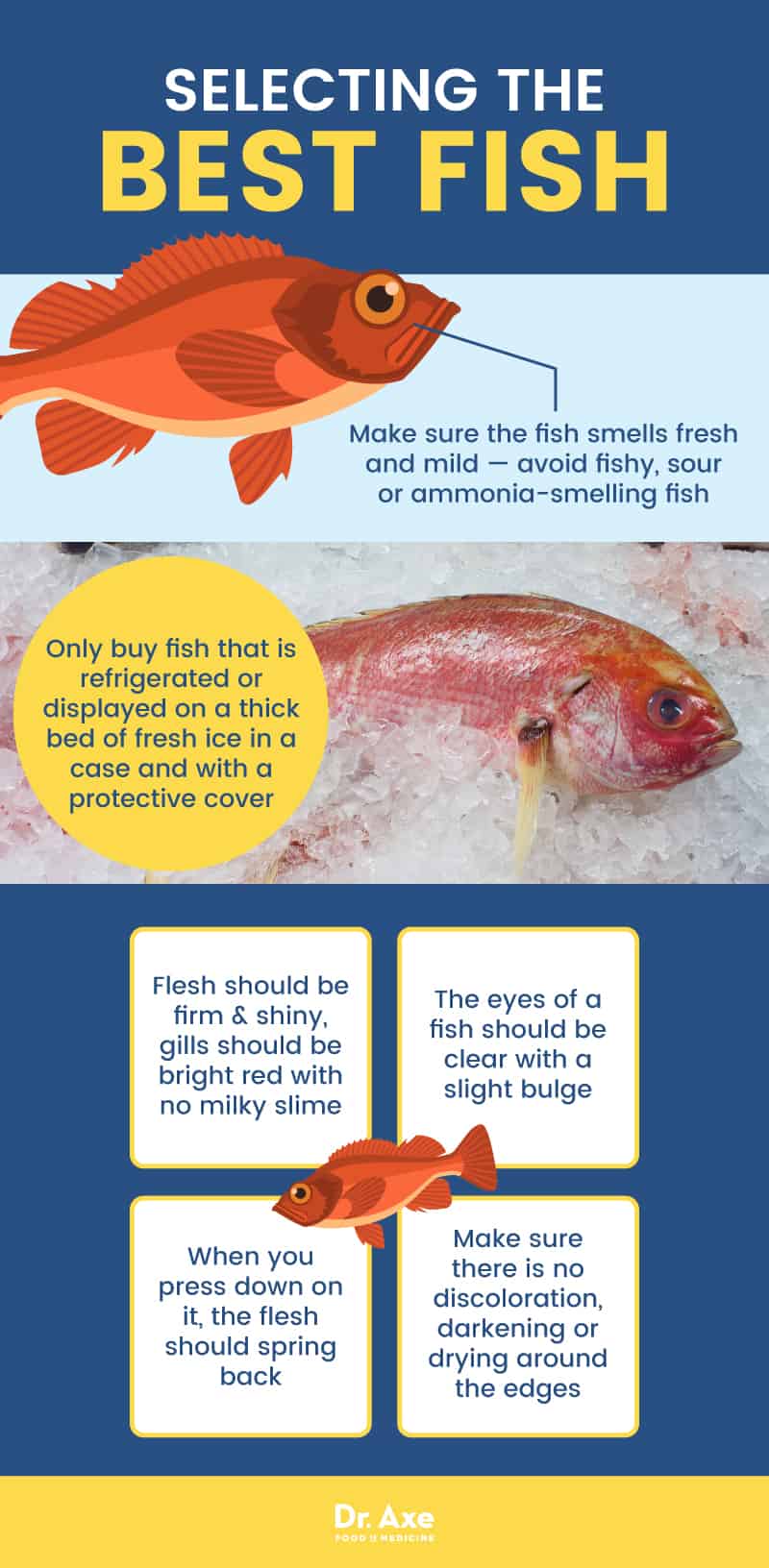This Dr. Axe content is medically reviewed or fact checked to ensure factually accurate information.
With strict editorial sourcing guidelines, we only link to academic research institutions, reputable media sites and, when research is available, medically peer-reviewed studies. Note that the numbers in parentheses (1, 2, etc.) are clickable links to these studies.
The information in our articles is NOT intended to replace a one-on-one relationship with a qualified health care professional and is not intended as medical advice.
This article is based on scientific evidence, written by experts and fact checked by our trained editorial staff. Note that the numbers in parentheses (1, 2, etc.) are clickable links to medically peer-reviewed studies.
Our team includes licensed nutritionists and dietitians, certified health education specialists, as well as certified strength and conditioning specialists, personal trainers and corrective exercise specialists. Our team aims to be not only thorough with its research, but also objective and unbiased.
The information in our articles is NOT intended to replace a one-on-one relationship with a qualified health care professional and is not intended as medical advice.
Is Rockfish Good or Bad for Your Health?
January 12, 2018

There are all sorts of fish out there, from those that are healthy when caught and cooked properly to fish you should never eat due to toxin contamination and farm fishing. So where does rockfish lie — and just what is rockfish anyway?
While there are many fish called rockfish, it is really a generic term. The East Coast commonly calls striped bass “rockfish,” but it is only OK to be called rockfish if it sold in the state where it has been caught. Once across the state line, it has to be called bass. Regardless, there are about 60 different species of fish that are allowed to be called rockfish, according to the FDA, and it is found on both the East and West Coast. (1)
For example, Pacific ocean perch, chilipepper, cowcod, grouper and treefish are all allowed to be called rockfish. So, we are still at the question we started with, what is rockfish? Basically, it is the name given to any fish that hides under and around rocks. Yes, that is a rather broad and vague answer, especially since these fish might not be related at all.
Given the broad definition and the group of fish that can fall under the category, can we definitely say rockfish is good or bad? Usually, yes. While it may have some beneficial effects, such as cell-building benefits, boosting brain function and potentially combating certain disease, rockfish generally is farmed and could lead to mercury and/or fish poisoning. Let’s take a look at both the good and bad when it comes to rockfish.
Is Rockfish Good for You? Potential Rockfish Benefits
1. Provides Cell-Building Benefits
Rockish contains protein, which is a must-have for proper nutrition. We know that we need protein, but why exactly? Ever wonder why they call protein the building blocks of life? It is pretty literal given that every single cell in the body contains protein.
Protein is made up of amino acids, and these amino acids help repair cells while making new cells. It is a pretty big deal when it comes to the growth and developmental stages of children, teenagers and women who are pregnant, in addition to helping repair and rebuild stressed cells of athletes. (2)
2. May Boost Brain Power
Ocean fish contains selenium, and since rockfish is found in oceanic areas, it is a food high in selenium. Selenium is important because it can help power the brain, but it does even more than that. (3)
As an antioxidant, it has cancer-fighting properties, helps with thyroid function, provides assistance for a healthy heart and supports the immune system. Without selenium, the body is at risk for various health conditions, such as autism, Down syndrome, brain tumors, liver disease, Alzheimer’s, diabetes, rheumatoid arthritis, pancreatitis, asthma and even obesity. (4)
3. Loaded with Vitamin D
Another good thing about rockfish is that it contains a good bit of vitamin D. In fact, certain rockfish can have up to about 46 percent of your daily recommended value worth. Of course, the sun can give us a good dose, but if you are sensitive to the sun or live in an area that may not have sunlight on a regular basis, getting enough vitamin D can be a challenge. In addition to rockfish, certain foods — such as fish oils and egg yolks — offer vitamin D.
We know vitamin D can can help with many things, including weight management, nervous system function, and bone and muscle health, but did you know it could even help combat cancer symptoms?
One study out of Sweden looked at 78 palliative cancer patients and supplemented half of with 4,000 international units of vitamin D daily while the other 39 were untreated as the control group. Researchers looked at opioid doses, antibiotic consumption and quality of life scores.
After a month, they found “the vitamin D treated group had a significantly decreased fentanyl dose compared to the untreated group … which increased further at 3 months.” In addition, those treated with vitamin D improved quality of life scores and “had significantly lower consumption of antibiotics after 3 months compared to the untreated group.” There were no adverse side effects reported by the vitamin D group as well. (5)
4. May Reduce the Risk of Disease
Selenium is a much-need nutrient to help maintain proper function of the body. It is quite the antioxidant, providing cancer-fighting properties, help with a good-working thyroid, keeps the brain sharp, the heart healthy and the immune system strong. Lack of selenium could cause some pretty serious problems, such as muscular dystrophy, autism, Alzheimer’s, Down syndrome, brain tumors and diabetes, to name a few.

Rockfish Side Effects and Downsides
1. Mercury
One one hand, most fish provide lean protein, selenium and vitamin D. Plus, fish is typically low in fat, making it even more appealing to consumers, but according to the Environmental Defense Fund, rockfish contains moderate levels of mercury. (6) Mercury can cause neurological disorders, thyroid issues, insomnia and kidney problems, to name a few. Grouper, for example, is one of those fish, and it is on my list of fish you should never eat due to its mercury content.
Additionally, a statewide advisory was issued by the Office of Environmental Health Hazard Assessment (OEHHA) regarding the consumption of rockfish on California coastal waterways, with the exception of enclosed bays and coastal areas, due to mercury levels and polychlorinated biphenyls (PCBs) found in the fish. (7) PCBs are a problem because they are manmade industrial chemicals that may cause many health problems, including potentially causing cancer. PCBs are known to build up in the skin, fat and internal organs of fish, which is why the OEHHA suggests eating skinless fish. (8)
Mercury levels in rockfish are not always all that bad, but you still need to monitor it. There is no need to eat fish daily, which can cause mercury levels to exceed safe levels and lead to mercury poisoning.
How much mercury is too much? Based on a study where fish contained high levels of mercury, the U.S. Environmental Protection Agency suggests that 0.1 µg/kg body weight per day is safe. (9)
2. Possible Fish Poisoning
You may have heard of fish poisoning from reef fish called ciguatera. This makes rockfish a potential candidate, but it is usually found in larger fish. Ciguatera fish poisoning is caused by fish that contain a toxin called ciguatoxin. This toxin is produced by the microalgae that is eaten by reef fish. Humans can get sick if eating fish that have eaten the algae or carnivorous fish that have eaten those fish that have eaten the algae. The illness is usually mild to moderate with potential for gastrointestinal issues, such as diarrhea, cramping, nausea, vomiting and some neurological effects. (10)
The International Association for Medical Assistance to Travellers in Canada reports that ciguatera is the most contracted foodborne illness for travelers. This sort of fish poisoning most commonly occurs in tropical and subtropical areas, such as the Pacific Ocean, the Indian Ocean and the Caribbean Sea. Any reef fish can cause the poisoning, but it is most likely contracted from species including “barracuda, grouper, red snapper, moray eel, amberjack, parrotfish, hogfish, sturgeon fish, kingfish, coral trout, and sea bass.” The ciguatoxins collect in the fish liver, intestines, heads and roe. Unfortunately, there is no way to tell if there is a problem since it does not affect the taste, texture or odor of the fish. The toxins cannot be eliminated by cooking, smoking, freezing or salting. Check with FDA reports in the area to make sure there has not been a recent outbreak of illnesses due to the toxins. (11)
Rockfish Nutrition Facts
Rockfish nutrition can vary based on the exact species, but we can approximate the nutritional value based on a mix of certain types of fish that qualify.
According to the USDA’s National Nutrient Database, one fillet (about 149 grams) of cooked, dry-heat, mixed species Pacific rockfish contains about: (12)
- 180 calories
- 35.8 grams protein
- 3 grams fat
- 69.7 micrograms selenium (100 percent DV)
- 340 milligrams phosphorus (34 percent DV)
- 1.8 micrograms vitamin B12 (30 percent DV)
- 5.8 milligrams niacin (29 percent DV)
- 775 milligrams potassium (22 percent DV)
- 0.4 milligram vitamin B6 (20 percent DV)
- 1.3 milligrams pantothenic acid (13 percent DV)
- 50.7 milligrams magnesium (13 percent DV)
- 2.3 milligrams vitamin E (12 percent DV)
- 355 international units vitamin A (7 percent DV)
- 0.1 milligram riboflavin (7 percent DV)
Where to Find and How to Use Rockfish
Rockfish is great in fish tacos, baked, blackened or grilled, and if you want the freshest fish available, getting it when it comes off the boat is the way to go since there are many dangers of farmed fish. However, if you go with the off-the-boat approach, that fish is likely to be a whole fish. Some fishermen may offer to filet it for you. Many cities, such as San Diego, offer this luxury, but, if you do not live in a fishing town, you are not going to make the catch.
Fresh frozen is probably going to be your best option, which can be found at local markets in the fish department. You want wild-caught whenever possible. You can ask about when the fish came in to gain some understanding of how fresh it is, but it was probably taken off of a boat, put on ice, shipped, filleted, then frozen — lots of steps to get to the market. (13)
Here are some things to look for when purchasing fish: (14)
- Make sure the fish smells fresh and mild. If it smells “fishy,” sour or ammonia-like, do not buy it. You have a keen nose; use it.
- Only buy fish that is refrigerated or displayed on a thick bed of fresh ice in a case and with a protective cover. Make sure the ice is not melting.
- The flesh of whole fish and filets should be firm. The flesh should be shiny, and the gills should be bright red with no milky slime.
- The eyes of a fish should be clear with a slight bulge.
- When you press down on it, the flesh should spring back.
- Make sure there is no discoloration, darkening or drying around the edges.
- Some refrigerated seafood has temperature indicators that show whether the product has been stored properly.
- If the fish is frozen, do not buy it if the package has been torn or opened.
- Buy fish that is toward the bottom of the freezer case.
- Avoid frost or ice crystals, which could indicate that the fish has been thawed and refrozen or has been around for awhile.

Rockfish Recipes and Healthier Rockfish Alternatives
Using healthy cooking options, such as baking, broiling, poaching or grilling fish, is great. Avoid artificial seasonings, and use ingredients like black pepper, lemon juice, lime juice, fresh grated ginger or a fresh mango chutney, and add some fresh steamed veggies for the best rockfish recipes.
If it is selenium you are looking for, you can get that in Brazil nuts, but if fish is what you are after, there may be some rockfish alternatives that you like. Wild-caught salmon is my go-to for fish, and while it doesn’t taste like rockfish, it’s perhaps the healthiest seafood around.
If you want a rockfish-like option, Safina Center suggests using striped bass or Pacific halibut instead of rockfish since they have a similar dense, flaky texture and flavor.
Here are a couple options for fish recipes to try — and again, make sure you consume fresh, wild-caught fish:
History
One of the longest living fish, rockfish (sebastes spp.) may be about 200 years old stemming from the Gulf of Alaska. Rockfish typically eat plankton, small crustaceans and small fish, and are usually anywhere from five to 41 inches. They are related to thornyheads, stonefishes and California scorpionfish.
Coming from more than 100 species of all sorts of shapes and sizes, rockfish usually hang out in kelp forests from intertidal waters to more than 1,500 feet of depth as well as on rocky reefs and in shallow waters near shores. They live in the North Pacific, Japan, the Gulf of California, and the South Pacific and Atlantic Oceans.
Known for the bony plates on their heads and bodies, their colors range from black and green to bright reds and oranges, and some have striped or splotchy patterns. Because some rockfish do not breed until they are 20 years old, it can affect their population due to overfishing. This has created the need for emergency rockfish closures on some area of the West Coast.
While you may not ever have to handle rockfish, they actually contain a venomous fin spines and ranges from very toxic to mild. Some rockfish can produce as much as 1,000,000 eggs at a time and the females give birth to tiny larvae about four to five weeks after fertilization. (15)
Precautions
As noted above, there are many precautions when it comes to eating rockfish — or any fish for that matter. Be aware of how fish is stored and where it comes from. When traveling, take the time to check on local fish reports.
Since rockfish is a generic name for many types of fish, ask for specifics. If you are pregnant, take extra precautions, and in all cases, use your nose! It can let you know if fish is bad in many cases, although it cannot inform you of the ciguatoxin previously noted.
Final Thoughts
- While rockfish may provide cell-building benefits, help boost brain power, and provides a healthy dose of selenium and vitamin D, it also can be contaminated with mercury and lead to fish poisoning, which is why I generally recommend avoiding it.
- It may be OK in small amounts on occasion, though I suggest opting for wild-caught salmon as your fish of choice instead. If you choose to eat it, consider the source first and foremost and make sure it had been stored properly.
- Adding it to your favorite fish taco recipe is a great way to have less while enjoying the flavor of the fish. Again, if eating fish, I suggest fresh, wild-caught fish whenever possible.










